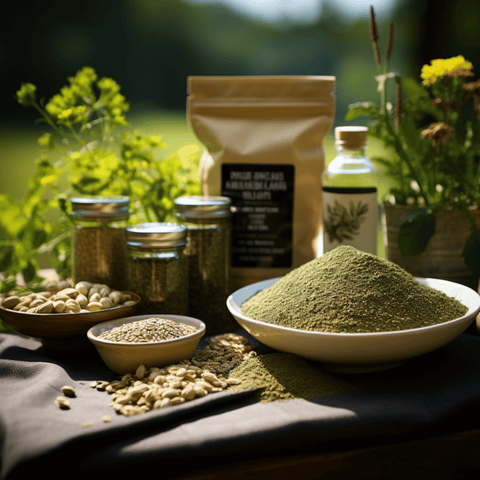The Benefits of Growing Hemp: A Future-Proof Cash Crop

Where there's earth, there's room for hemp. This robust crop thrives across the United States, with just a few exceptions: extreme arid conditions or towering altitudes. Growing industrial hemp, a versatile cash crop, presents a unique opportunity to farmers regardless of their geographic locations.
Yet, hemp demands well-drained soil for optimal growth. So, for land that lacks natural drainage, farmers may need to put in a bit of extra work to prepare the terrain. The takeaway here is simple: if you're a farmer, the chances are high that hemp could be your next bumper crop.
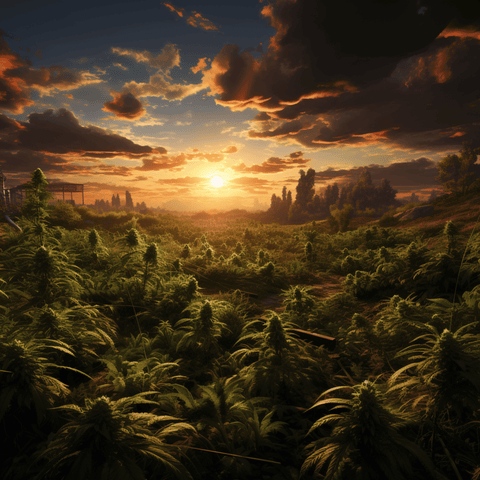
1. Grow Hemp Almost Anywhere: The Crop for Every Farmer
The beauty of the hemp plant is that it's not picky about where it grows. Except for bone-dry deserts or towering mountain ranges, it can thrive almost anywhere. So, the benefits of growing hemp aren't limited to a particular geographic niche. You may need to put a little extra elbow grease if your land's drainage isn't top-notch, but generally speaking, the hemp plant is quite forgiving.
2. The Magic of Versatility: Endless Uses of Hemp
Let's talk about the industrial hemp variety, the cannabis sativa. This is a plant that keeps on giving. Over 25,000 different products can be made from hemp - from hemp oil, which promotes wellness, to hemp paper, biodiesel fuel, and building supplies. Every inch of a hemp plant serves a purpose. This versatility presents numerous avenues for farmers to turn a profit from their hemp crop, and even maximize earnings by utilizing different parts of the plant.
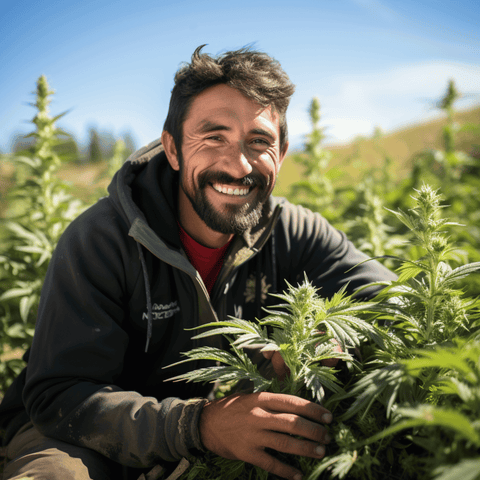
3. Show Me the Money: Hemp's Promising ROI
Farming is a business, and like any business, profitability is key. The economic benefits of growing hemp, particularly for CBD and/or CBG, are hard to ignore. While some hemp farmers claim to make up to $30,000 to $40,000 per acre by growing hemp for CBD or CBG, corn farmers may only make about $1,000 per acre. These figures may not be the norm for all hemp farmers, but they certainly underscore the massive earning potential this crop holds.
4. Robustness Personified: Hemp Stands Tall
Farming is a risky game, with unpredictable weather, pests, and diseases lurking around the corner. However, hemp plants stand out for their resilience. They are naturally resistant to many common pests and diseases that can devastate other crops. Plus, hemp grows so swiftly that it often leaves potential weed competitors in the dust, conserving precious resources for itself.
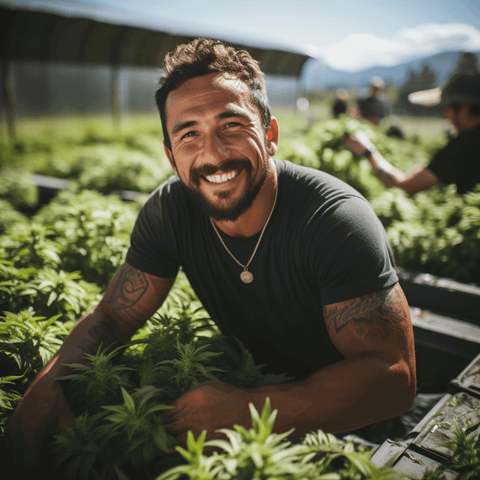
5. Fast and Furious: Autoflower Hemp's Quick Growth
In colder climates where the growing season is short, or in warmer climates where multiple harvests in a year are possible, autoflower hemp seeds are the perfect solution. They mature in 70 to 75 days, slashing weeks off the usual grow time of full-term hemp. This speedy growth gives farmers more flexibility and allows them to make the most of their land.
6. Soil's Best Friend: The Hidden Benefits of Growing Hemp
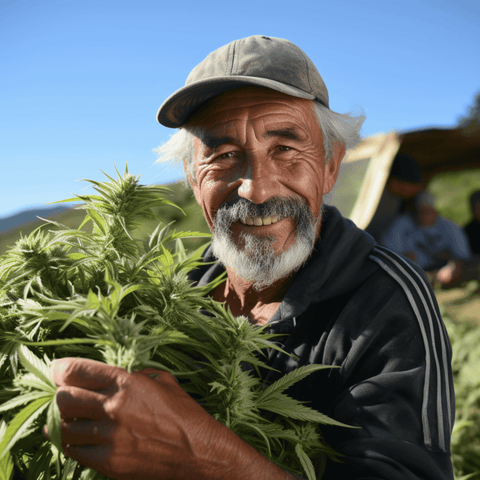
Unlike most cash crops, which deplete soil nutrients, hemp plants work to restore soil health. They dig deep with their roots, preventing soil erosion and aerating the ground. Moreover, after the leaves and buds are harvested for CBD or CBG, the residual biomass can degrade and replenish soil nutrients, revitalizing it for future crop rotations.
7. Every Drop Counts: Water Efficiency of Hemp
Water costs are a significant concern for farmers, especially in drier regions. Although hemp isn't a low-water crop, it's more water-efficient than many others, requiring less water than thirsty crops like avocados and almonds. This aspect makes hemp a cost-effective option for farmers looking to keep their water bills low.
8. Fewer Chemicals, More Health: Hemp's Pesticide and Herbicide Requirements
Many CBD hemp farmers prefer employing biologics and Integrated Pest Management to retain the purity of their crop and increase product value later on, even if the EPA has approved some pesticides and herbicides for hemp cultivation. Growing hemp allows for minimal use of chemical pesticides and synthetic herbicides, which is a win for the environment and consumers alike.
So what does that mean? Simply put, cultivating hemp can help reduce the load of harmful chemicals entering our soils, water sources, and the food chain. And fewer chemicals mean a healthier planet and healthier people. Now that's what we call a win-win situation!
9. Hemp’s Role in Carbon Sequestration: A Champion Against Climate Change
Here's something you might not know. Every acre of hemp sequesters about 10 tons of CO2 from the atmosphere. That's right! Hemp isn't just good for us and the soil; it's fantastic for the atmosphere too. By absorbing massive amounts of CO2, hemp plays an active role in combating climate change. Just imagine the impact we could make if we embrace hemp farming on a larger scale!
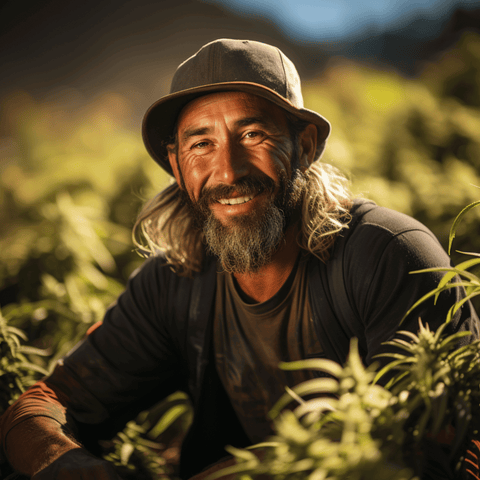
Future Prospects and Market Growth of Hemp
Hemp is an exceptional sustainable plant for the planet. The construction industry and its allied sectors account for roughly one-third of all carbon emissions globally, raising significant concerns. Additionally, researchers claim that plastic pollution worldwide has increased from 300 million metric tons to approximately 360 million metric tons, with projections suggesting a further increase by 2050.
As a result, it is imperative to either reduce our reliance on plastics or switch to biodegradable plastics made from plants like hemp. Hemp is experiencing a resurgence and is quickly becoming one of the fastest-growing agricultural and industrial markets. According to Verified Market Research, the global hemp market was valued at 5.66 billion USD in 2020 and is expected to reach 27.72 billion USD by 2028.
The COVID-19 pandemic has heightened health awareness, accelerating the growth of the hemp market. The demand for hemp-based wellness and skincare products is the primary driver of market growth worldwide.
However, legislative frameworks and regulations regarding industrial hemp usage may hinder market expansion. Therefore, it is essential to promote the legalization of hemp cultivation and educate farmers about its benefits.
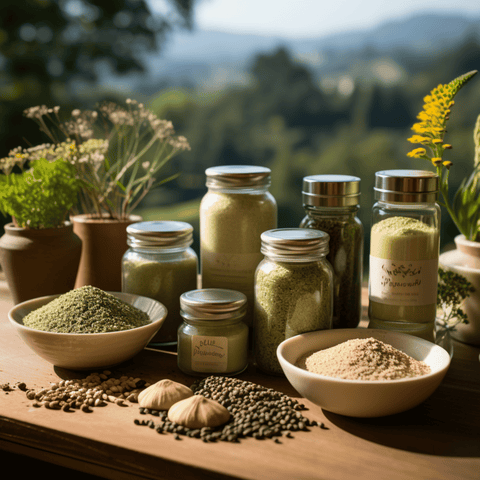
Hemp - A Future Full of Potential
Growing hemp offers a bouquet of benefits - for the farmers, for the consumers, and for the planet. From its resilience to varied climates and soil types, its diverse uses, and high ROI, to its natural pest resistance, soil regeneration, and carbon sequestration capabilities – hemp holds the key to a sustainable and profitable future.
It's time we break the shackles of the stigma associated with hemp and recognize its full potential. The hemp plant, often overlooked and underestimated, could be one of the greatest allies in our quest for sustainability and ecological balance.
So, to all farmers and agriculturists, and indeed anyone interested in sustainable farming and green solutions – let's get behind hemp! Here's to a future where our fields are full of this wondrous plant, contributing to a healthier, greener, and more sustainable world.
Remember, every hemp plant grown is a step forward towards a better, more sustainable future. Let's get planting!
You can grab some of the best hemp products made in Australia here.
